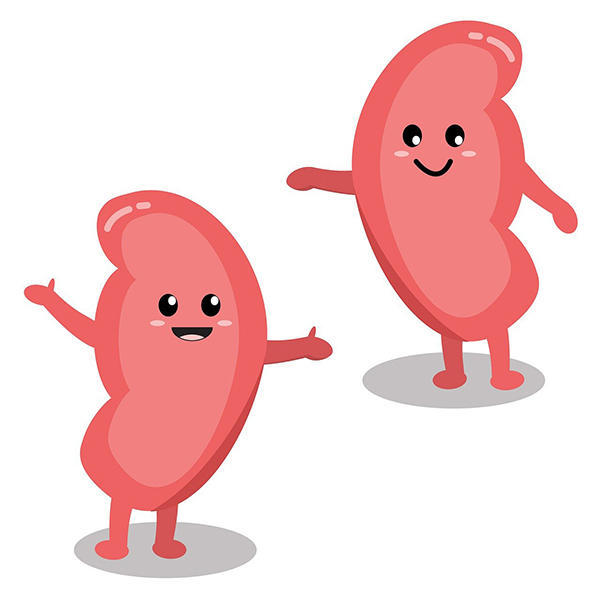
Macular Degeneration
Macular degeneration is an eye disease that damages the macula, the central part of the retina, leading to progressive vision loss, especially in people over 50. It is the leading cause of vision impairment in older adults, affecting millions worldwide, with risk factors including age, genetics, smoking, and high blood pressure.
Symptoms and Causes
Macular degeneration primarily affects central vision, leading to blurred or distorted sight, difficulty reading, and trouble recognizing faces. In its early stages, symptoms may be subtle, such as needing more light for reading or seeing straight lines appear wavy. As the disease progresses, central vision loss becomes more pronounced, making daily tasks increasingly challenging.
The exact cause of macular degeneration is not fully understood, but it is linked to aging and the breakdown of the macula, the central part of the retina. Risk factors include age (primarily affecting those over 50), genetics, smoking, high blood pressure, and prolonged exposure to UV light. There are two types: dry macular degeneration, which develops gradually, and wet macular degeneration, a more severe form that can lead to rapid vision loss due to abnormal blood vessel growth.
Prevalence and Prognosis
Macular degeneration is a leading cause of vision loss, affecting nearly 20 million Americans, with older adults being the most at risk. The condition is more common in individuals with a family history and those who smoke. While it does not cause complete blindness, it significantly impacts quality of life by making activities like reading, driving, and recognizing faces difficult. There is no cure, but early diagnosis and lifestyle changes can slow its progression.
Management and Treatment
There is no cure for macular degeneration, but treatments focus on slowing its progression and managing symptoms. For dry macular degeneration, lifestyle modifications such as a nutrient-rich diet, quitting smoking, and using specialized supplements may help. For wet macular degeneration, treatments like anti-VEGF injections can reduce abnormal blood vessel growth and preserve vision. Low vision aids, such as magnifiers and adaptive technologies, can also improve daily functioning.
Living with Macular Degeneration
Adjusting to life with macular degeneration requires modifications to maintain independence. Using brighter lighting, high-contrast reading materials, and voice-assisted technology can help individuals adapt. Emotional support from loved ones and vision rehabilitation programs can improve quality of life. Planning for future vision changes early allows for smoother transitions to adaptive tools and support systems.
Top Concerns
Vision Loss & Independence – Central vision impairment makes tasks like reading, driving, and recognizing faces difficult. Individuals must learn adaptive strategies to maintain their daily routines and independence.
Emotional Impact – Losing the ability to perform familiar tasks can lead to frustration, anxiety, or depression. Support from family, counseling, and vision rehabilitation programs can help with emotional adjustment.
Safety & Navigation – Impaired vision increases the risk of falls and difficulty navigating unfamiliar environments. Making home modifications, using contrast-enhancing tools, and seeking mobility training can improve safety.
Financial Implications – The costs of treatments, vision aids, and lifestyle adjustments can add up. Planning ahead and exploring insurance coverage or assistance programs can help ease the financial burden.
Featured in Macular Degeneration
- Kidneys: The Unsung Heroes for Diabetics!
 Let’s talk about your kidneys—the tiny, bean-shaped superheroes working overtime to keep your body running smoothly. When you have Type…
Let’s talk about your kidneys—the tiny, bean-shaped superheroes working overtime to keep your body running smoothly. When you have Type… - Inflammation: The Root Cause of Almost Every Major Disease You’ve Never Heard About
 Inflammation might sound like something that happens when you sprain your ankle or get a nasty paper cut, but did…
Inflammation might sound like something that happens when you sprain your ankle or get a nasty paper cut, but did… - Intermittent Fasting and Type 2 Diabetes: The Controversial Treatment Gaining Traction
 Intermittent fasting has been making waves in the health world for a while now, praised for everything from weight loss…
Intermittent fasting has been making waves in the health world for a while now, praised for everything from weight loss… - Weight Loss Medications and the Future of Obesity Treatment
 Recent advances in weight loss medications, particularly GLP-1 receptor agonists, have generated unprecedented excitement in obesity treatment. While these medications…
Recent advances in weight loss medications, particularly GLP-1 receptor agonists, have generated unprecedented excitement in obesity treatment. While these medications… - Stress and Its Impact on Your Physical Health
 Stress doesn’t just affect your mood—it takes a toll on your body too. Chronic stress can contribute to high blood…
Stress doesn’t just affect your mood—it takes a toll on your body too. Chronic stress can contribute to high blood… - Obesity and its Numerous Comorbidities
 Obesity significantly impacts multiple organ systems and is associated with numerous comorbid conditions that can substantially affect health outcomes and…
Obesity significantly impacts multiple organ systems and is associated with numerous comorbid conditions that can substantially affect health outcomes and… - Medicare Won’t Cover Popular Weight Loss Drugs Under New Trump Administration Rule
 The debate over weight loss drugs just took a major turn — and it’s hitting Americans 65 and older right…
The debate over weight loss drugs just took a major turn — and it’s hitting Americans 65 and older right… - Your Dentist Might Spot Heart Disease Before Your Cardiologist
 You might visit your dentist expecting a routine checkup, but what if they end up being the first to warn…
You might visit your dentist expecting a routine checkup, but what if they end up being the first to warn… - New Study Finds 17 Ways to Lower Your Risk of Stroke, Dementia, and Depression
 What if you could make a few changes to your daily routine — and in doing so, reduce your risk…
What if you could make a few changes to your daily routine — and in doing so, reduce your risk…

